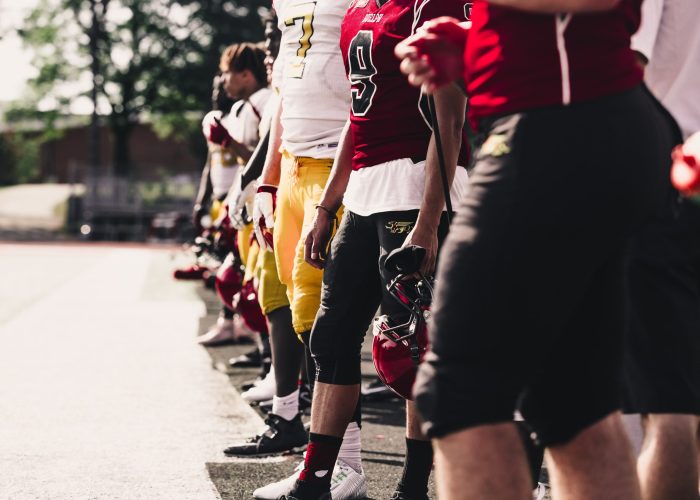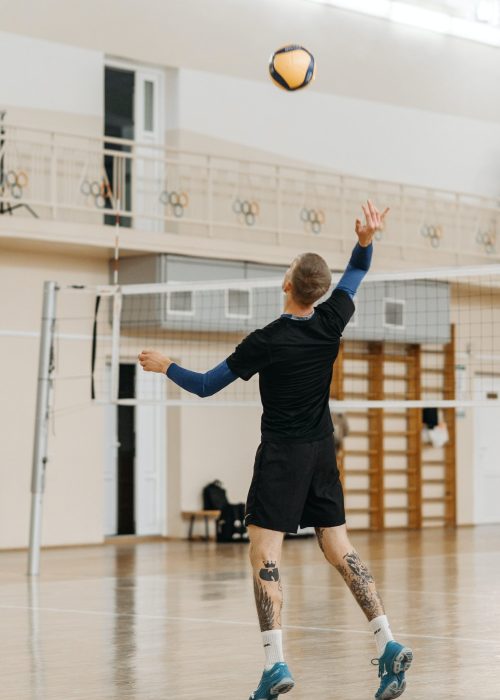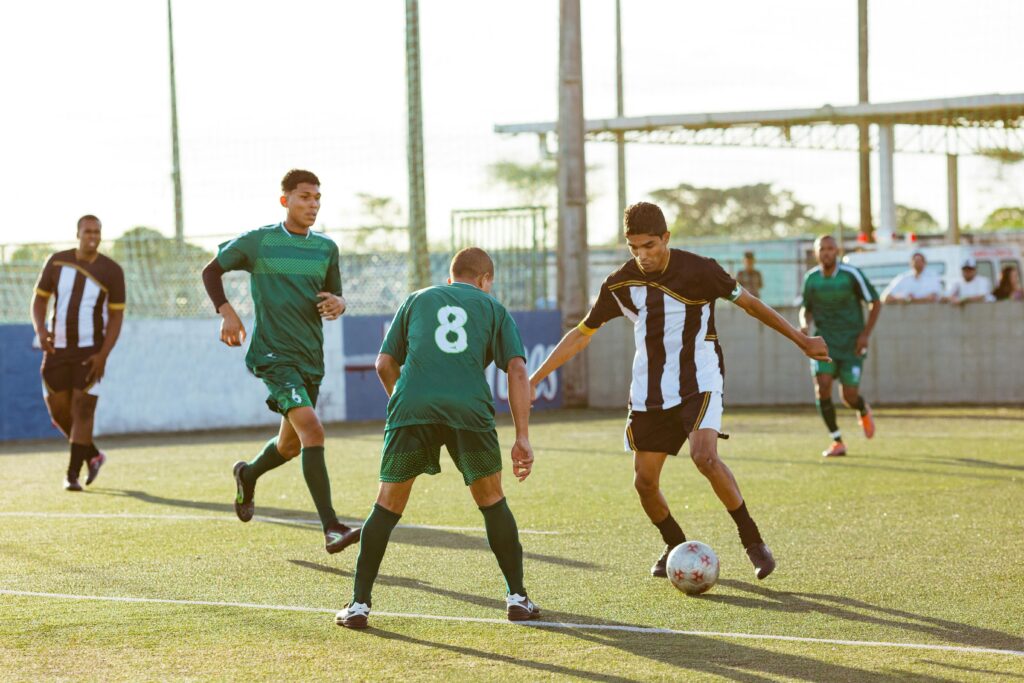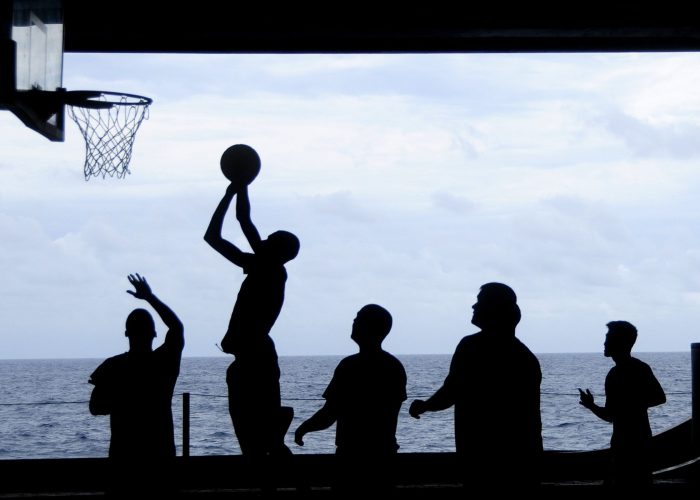Questions you may want to ask
Parents and guardians, as you consider your child's transition into post-secondary, you should also consider viewing their transition away from your guidance, protection, and shelter.
The following is a list of frequently asked questions compiled by coaches, athletes and parents. – Remember that there is no such thing as a dumb question.
Questions To Ask About Academics:
Q. Describe your academic support program in detail. For example, Study-hall requirements, tutor availability, staff, class load, and faculty cooperation.
– This is imperative for marginal students.
– Find colleges that will take 3,000 students and help them get a 3.500 GPA.
– Does the athletic department provide tutors?
– Do you have to attend study hall?
– Are you required to maintain a certain grade point average?
Q. What is the academic rating for this school, and how was it awarded?
– This will tell you the overall academic status.
– Compare it with other schools.
Q. Describe the typical class sizes.
– At larger schools, classes will likely be larger and taught by teaching assistants.
– Average class size is important; it’s ideal to have better student-to-instructor ratios.
Q. What are the sizes, locations and operational hours of the library and labs?
– Operational hours are very important; due to long practices, lengthy projects and assignments, you should be able to study in an environment that will allow you to use its resources for long hours
– Labs should be an ideal size for the school’s population
– You may want to stay closer to a library or study centre, enabling you to study in a quiet location.
Q. How good is the department in my major?
– Smaller colleges can have very highly rated departments.
– If you are still determining your major (most student-athletes are undeclared until their second year), explore several departments (faculties) and compare the resources they have (labs, libraries, class sizes, lecture halls). The more resources it has, usually correlates with the prestige and enrollment with that department.
– Look at the Faculty/Department Heads; if they are highly accomplished, then it may provide insight on funding. Take time to google them and see publications; it may provide you insight into their teaching style.
Q. What percentage of players on scholarship graduate in four years?
– This will tell you about their commitment to academics.
– The team’s grade-point average may also indicate the coach’s commitment to academics.
Q: Is it possible to arrange classes around the practice schedule?
– Concentrating on your class or lecture may be difficult if it falls directly after your practice(s).
– You may need more time to make it to your practice if your class is far from your practice facility.
– Consider if you want to ask your instructor extra questions after your class. Will your gesture to receive clarification make you late for practice? (Yes, you can email your instructor, yet asking in-person questions is better in most cases; it connects the student-athlete with the instructor.)
Q: How many of your teammates or other student-athletes from different teams are enrolled in the same classes you want to enroll in:
– Having teammates or fellow student-athletes from different teams in the same classes may be ideal for the following points :
- Allow you to join a group to share note-taking, or you can bundle the lecture notes together for a more comprehensive resource.
- If you miss a class, you can learn quickly what was missed.
- It will be easier to find a study partner.
· You will have someone to make sure that you are attending your classes.
Q: What arrangements are made for assignments and exams that are missed due to games and tournaments?
– It is important that you do not miss any exams and assignments that cannot be rescheduled or rewritten, as this will affect your grade point average.
– To play (and possibly practice), you must maintain a passing overall grade point average
Q. Is there a waiting list for extra academic assistance or a program already in place?
– It is essential that you find out if help is available. You may need help as soon as you arrive; if the extra help is not there when you need it, you may fall behind faster.
Q. What resources are available for students with documented learning disabilities?
– This is a very important question, even if you do not have one. Many students are diagnosed with learning disabilities later in their educational paths.
Q. What Recognized Academic Awards has the school received?
– This will inform you of the strengths of the programs
Q. Are the classes transferable to your local Universities?
– You may or may not want to ask this question, yet you should explore if the courses you take are transferable to other schools as you may decide to continue your education in your local area.
Q. Do any classes listed on my high school transcript apply to any of the first-year courses?
- You may be surprised that some classes taken in high school, such as calculus, can be applied to a first-year university undergraduate course.
- We know that some student-athletes can jump an entire year of academics due to their academic achievements in high school in Canada.






Questions Regarding School Life:
Q. Describe the typical day for a student-athlete.
– This will give you a good indication of how much time is spent in class, practice, studying and travelling.
– It will also give you a good indication of what coaches expect.
Q. Where is the dining hall, and what are its hours of operation?
– Do student-athletes have a specific dining hall?
– It is important to know the hours that you can eat, you may want to eat earlier or later. Make sure that the school will accommodate this.
– Besides the dining hall, are there more options to eat around campus without a cost? (Most athletic programs will provide free healthy snacks and beverages at the athletic training centre.)
Q. What are the residence halls like?
– Some schools may have this arranged to promote team unity
Q. Is there a residence set up for athletic team members?
– Ensure you feel comfortable in study areas, community bathrooms and laundry facilities.
– The number of students in a room and the presence of co-ed dorms are other variables to consider.
Q. How big are the dorm rooms for first-year students?
- Traditionally first-year students that stay on campus have different dorms than those are in their later academic years. The dorms for first-year students are closer to resources.
- Your dorm room is your space away from all pressure, it is your sanctuary, you should feel comfortable and have privacy.



Questions Regarding Personal Health And Well-Being:
Q. What campus outreach resources are available?
- Counselling services for students should be accessible.
Q. Does the team have a medical doctor?
- If the team has a designated doctor, you need to be informed if the team doctor is acting on behalf of the school or is the student athlete an independent patient.
Q. If a student-athlete is injured, what resources are available?
- Does the school take care of the student-athlete, and all aspects of rehabilitation, if needed.
- Are X Rays, MRI and ultrasound covered by the school?
Q. If needed, is a student healthcare insurance plan available, if it is, is it covered by scholarship funding or other means?
- Many student health care plans and university-sponsored health insurance programs typically include coverage for prescription medications. These plans are designed to provide comprehensive health coverage for students, which may include coverage for doctor visits, hospital stays, and prescription drugs. However, the specifics of coverage can vary from one plan to another, so it’s essential to review the details of the student health insurance plan offered by the educational institution or consider private health insurance options if your school does not provide coverage. * When reviewing the plan, be sure to check the formulary (list of covered medications), copayment or coinsurance amounts, and any restrictions or requirements related to prescription drug coverage.


Question Regarding Athletics:
Q. How long does my scholarship last?
– Clarify your scholarship; be aware that financial aid may be available on a one-year renewable basis.
Q. What positions will I play on your team?
– It’s not always obvious, and you may provide strength in a different position.
– Most coaches will be flexible so that you are satisfied.
Q. Describe the other players competing at the same position.
– If a former high-school all-American is in that position, you should consider that to be sure that you will receive quality playing time.
– This will tell you what year you might become a starter.
Q. Can I "redshirt" my first year?
– Find out how common it is to “redshirt” and how that will affect graduation.
– What happens if you are injured? Do you get a deferred year?
Q. How many athletes have entered the transfer portal (transferred out from the team?)
– This can help you understand the team’s stability and potential concerns regarding student-athlete retention.
Q. What are the physical requirements each year?
– Philosophies of strength and conditioning vary by institution.
– You may be required to maintain, increase or decrease your weight.
Q. How would you best describe your coaching style?
– Every coach has a particular style that involves different motivational techniques and discipline.
– You need to know if their style aligns with yours
Q. What is the game plan?
– Find out what kind of offence and defence is used.
– Find out how you are seeded and qualify for conference or national championships.
Q. When does the head coach's contract end?
– Don’t make any assumptions about how long a coach will be at a school; if their contract ends, you may inherit a new coach with different philosophies and styles than you are comfortable with.
Q. Describe the preferred, invited and uninvited (open) walk-on situation. How many make it, compete and earn a scholarship?
– Different teams treat walk-ons differently.




Advice from Lessons Learned:
Students, focus on a school that is interested in you versus a school that is on the fence, as the interested school will go that extra mile. Also, consider the unknowns and what ifs/hypotheticals; what if you are injured and unable to play? – You need to be happy where you are so you can complete your studies.
Parents and guardians should trust and have confidence in their child’s new coach and staff. They will play a crucial role in guiding your child. It’s important to express your willingness to communicate about any uncertainties and concerns, both on and off the field. However, when discussing matters with coaches, focus on your child’s overall happiness rather than specific issues like playing time or coaching style.
© Copyright 2023 The information in this article has been provided with permission from the author of “Making Contact: A Student-Athlete’s Guide to Scholarships.” & Information collected from Project GEN-Z by the RAC. Copying content for commercial gain is strictly prohibited without expressed written permission.
